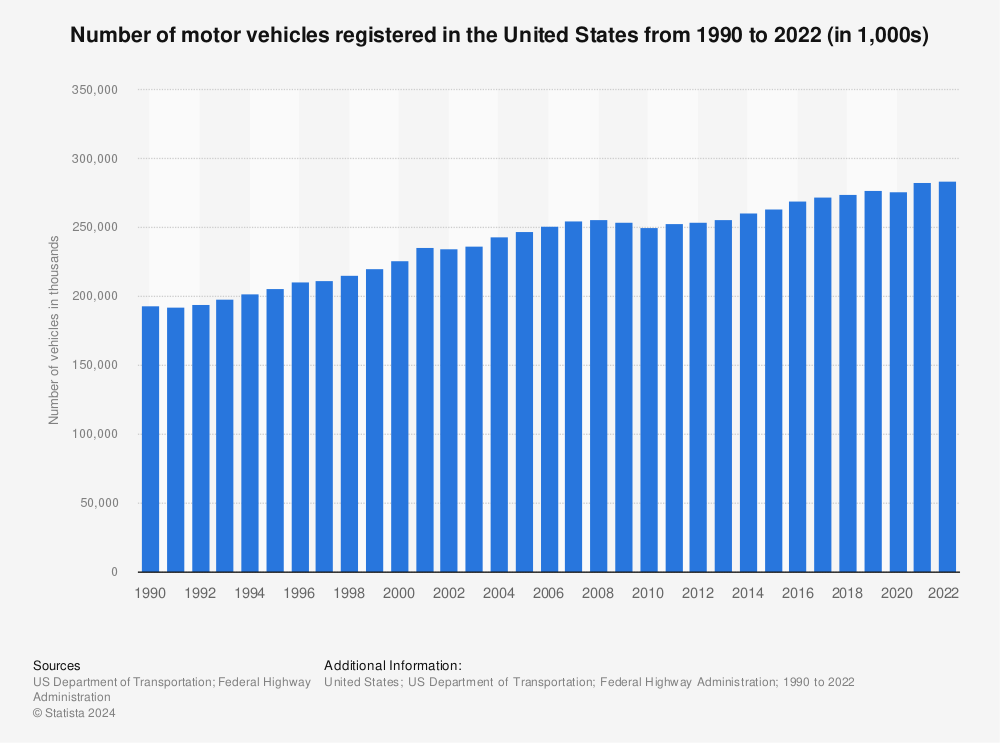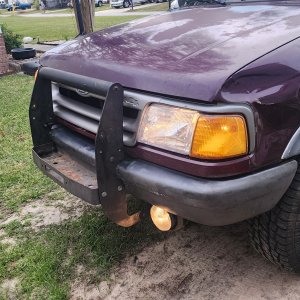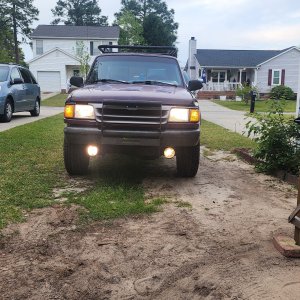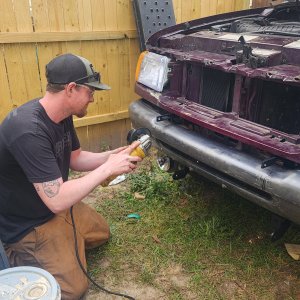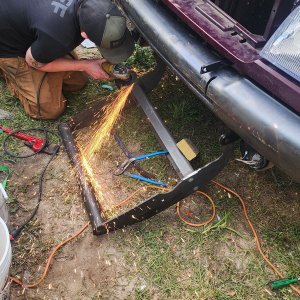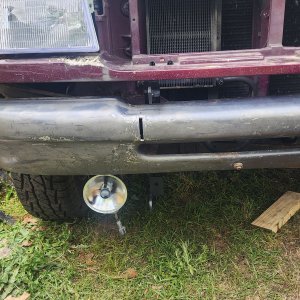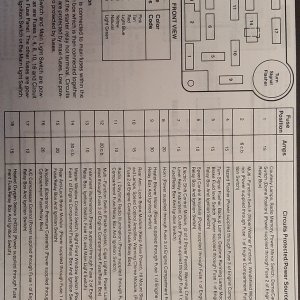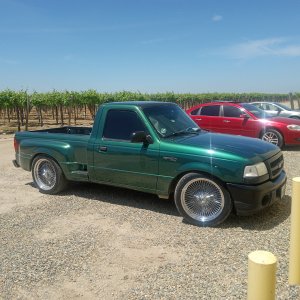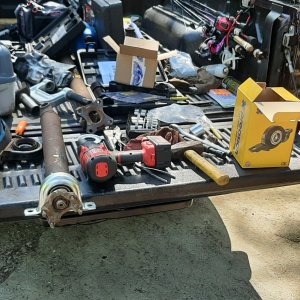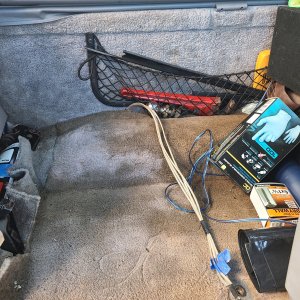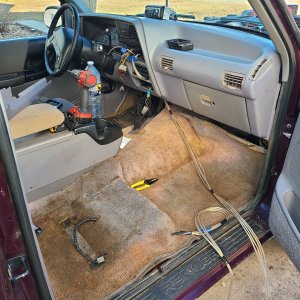Not sure how passionate you are about renewable energy and the "green" thing, for all I know you are playing devils advocate here. It is fun to debate it though, I am glad the moderator police haven't stepped in yet.
My question for you is, what is your "ideal" state of our energy grid and what is going to make the tree huggers happy? What would this actually look like? Unless they have some sort of tech break through, with the technology we have now, is every square inch of US soil going to be covered with solar panels? Windmills too? And of course we will have large battery factories with battery recycling and lots of chemicals to support this?
Will we keep trucks ICE or is it practical to go electric with them also? Will the weight limits of the 18 wheelers have to raised since they can't carry as much load because of the extra battery weight? What about construction equipment running all day moving dirt around. Are there any practical tree huggers that admit the ICE will always be here and have some practical uses? Some sort of final balance of ICE versus EV?
I think I'm pretty reasonable in my expectations for EVs and our future energy needs. I'm not a super passionate idealist. I try to reduce my consumption in many ways, but I'm not perfect, and focusing all of my energy on reducing my environmental impact sounds pretty miserable too. My daily driver is a PHEV that's averaging over 90mpg in it's 50k miles, but I still love to bang through gears in my supercharged Ranger too. Different tools for different jobs. I know that it's not all rainbows and unicorns no matter what we do. Batterys are dirty. Electrical generation is dirty. Tailpipe emissions are dirty. Getting fuel out of the ground and into vehicles is dirty. There is no perfect solution, it's just about which ones are less bad. I try to be well informed and base my decisions on data/facts rather than just how I feel. I used to feel the way that a lot of people do about EVs. I've made the same arguments against them that many here have. I now challenge a lot of the detractors in threads like these, because the more I looked into it (and the longer EVs have been around) the more data is presented that indicates EVs are a pretty good idea. That's not to say they're perfect, but I think as a whole they're better than what we're currently doing. I try to always have some data to support my position so that others might be able to look into the situation further if they're inclined, and so they may know that I'm not just spouting idealistic garbage. It might not change anybody's opinions, but I hope that it can at least make some people consider some alternative outlooks. I think it's human nature to see change on the horizon and assume that it's going to be bad, or to try and come up with reasons that it won't work as well as what we're doing now. Change is uncomfortable. I'm not usually a big fan of it honestly. But I think it's inevitable too, so instead of griping about it I've tried to learn as much as I can.
Reports that I've read suggest that in an ideal scenario, as little as 20,000 sq mi of solar panels would be capable of providing enough electricity for the entire US. The yellow square here represents that amount of land area:
(This is only a representation of area, not an actual suggestion for a huge block of panels in a single location. I know there would be numerous issues with this approach)
There are literally tens of thousands of square miles of empty rooftops in the US that would work really well with some solar panels. Places like schools, shopping malls, warehouses, grocery stores, large churches, etc seem like ideal options to me. Elevating a solar array over a parking lot to generate electricity could work too while having some other benefits. My point is that it's not as if every square inch of the country needs to be solar panels. There's a ton of wasted flat space that's already developed that could be used for solar before any other undeveloped flat ground is devoted to solar.
It's funny that you bring up work vehicles like trucks and construction equipment because that's what pays the bills in my house. I do R&D for diesel and natural gas engines. My wife deals with heavy duty hybrids, BEVs, and hydrogen fuel cells at work. We've got this covered from all aspects in my house. My employer continues to make diesels because they're currently the best or in some cases only option to do a lot of work. But they also see the writing on the wall, and know that they simply won't be allowed to sell diesels in some places before much longer, so they have prototype battery powered trucks, and construction equipment in the field. They have fully electric buses in customer hands on public roads. They have hydrogen fuel cell powered semis, trains, boats and power generators in use too. I know that there are limitations to what each of these technologies is capable of, but there are also jobs that each of these technologies excels at. I think the trick moving forward is going to be identifying which technology works best for a given application.
Long haul trucking has lots of issues that a full battery electric truck can't currently solve (weight, cost, and charge times being the largest). But hydrogen fuel cells might be a better fit there if they can figure out some infrastructure. Still, it's going to take time and a whole bunch of money for either option to make more financial sense than a diesel. But this tech can't be developed over night. If you want to have the best fuel cells in 2040, you needed to be investing in them 5-10 years ago. Meanwhile, EV buses, delivery trucks, and local semis are increasingly popular because they run set routes with shorter distances and often have lots of low speed stop/go driving. Batteries are a good fit for these vehicles, and they greatly reduce maintenance costs for the fleet operators. Uptime is everything to these businesses. If a vehicle is down for repairs, it's not making you money. And money is obviously a huge factor here.
For several years, the US has let other countries handle most of the work when it comes to alternative energy production. The US can cheaply support itself with the oil/gas that we already have, so there was less motivation to change than a place such as China or Europe. Those places do not have the means to support their own energy needs, so they have been more motivated to implement alternative energy options, and more heavily subsidize EVs, etc to reduce their dependence on foreign countries. This was expensive because the tech wasn't very mature but they had no choice really if they wanted energy independence. In the last couple of years solar panel efficiency has increased while production costs have decreased. Same is true for batteries, with efficiency climbing and costs declining. If the US has any intention of being a player in the alternative energy arena, then it's about time to start investing in that tech. The price tag continues to fall, but governments (both domestically and globally) are signaling a significant reduction in fossil fuels in the next 2 decades so it's time for the US to ramp up their investment. If they continue to keep investment in alternative energy low, costs are likely to continue to drop. But they're also likely to have to rely on other nations that have invested more heavily, and that hurts their independence as well as their position as a global political leader. It's also bad for US businesses that want to invest in these technologies so they may sell their products across the globe. They're at a disadvantage to global competition if their tech isn't financially viable because there's little domestic demand for it. EV batteries, or solar panels, make a lot more financial sense if you can spread out the R&D and production costs across global demand, rather than just producing enough to sell in a handful of smaller regions.
My hope for "the Grid" is to increase clean energy options on a small, local level. I want as many businesses, government facilities, and home owners as possible to be energy independent in the same way the US as a whole is. I want them to be able to support their own electrical needs to reduce their demand from "the Grid", and if they can completely eliminate their demand or even sell some energy back to the utilities, even better. This would make these places less likely to suffer in the case of a power outage, while also reducing the liklihood of an outage in the first place. It also helps to alleviate the national security concerns that Mike G mentioned above if every zip code or every house can provide for what they need.


